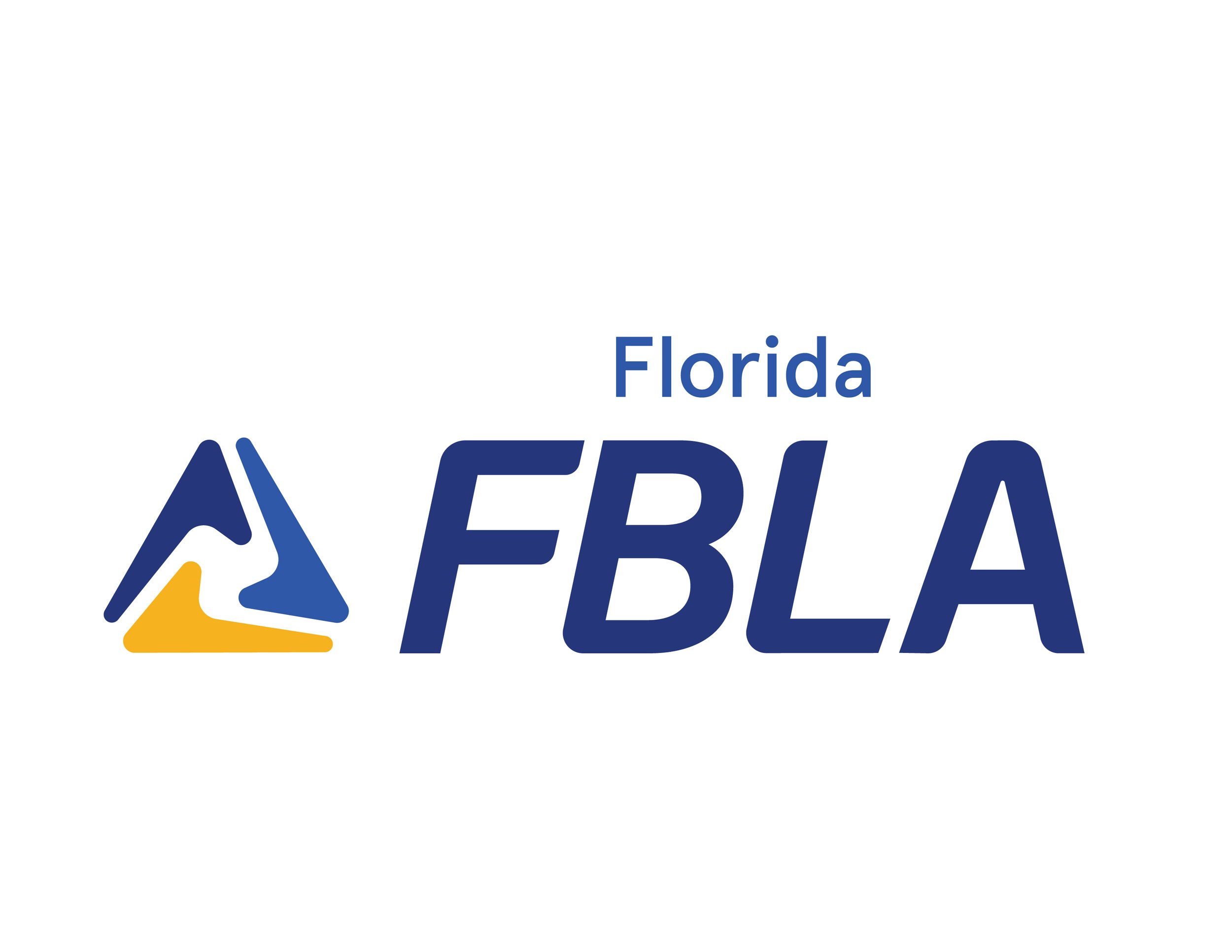Ms - exploring economics
Exploring Economics challenges members to demonstrate their understanding of fundamental economic concepts through an objective test. This event introduces members to key areas such as supply and demand, market structures, and the role of government in the economy.
Event Overview
Division: Middle School
Event Type: Individual
Event Category: Objective Test, 50-multiple choice questions (breakdown of question by competencies below)
Objective Test Time: 30 minutes
Career Cluster Framework Connection: Economics
NACE Competency Alignment: Career & Self-Development, Critical Thinking
Items Competitor Must Provide: Sharpened Pencil, Conference-provided nametag, Attire that meets the Florida FBLA Dress Code.
Competencies
· Fundamental Economic Concepts
· Nature of Business
· Government’s Impact on Business
· Cost/Profit Relationships
· Economic Systems
Test questions are based on the knowledge areas and objectives outlined for this event. Detailed objectives can be found in the study guide included in these guidelines.
District
Check with your District Leader for district-specific competition information.
State
Eligibility
· FBLA membership dues are paid by 11:59 pm Eastern Time on December 1 (or earlier date specified by the District Director) of the current school year.
· Members may compete in an event at the State Leadership Conference (SLC) more than once if they have not previously placed in the top ten of that event at the National Leadership Conference (NLC). If a member places in the top ten of an event at NLC, they are no longer eligible to compete in that event.
· Members must be registered for the SLC and pay the state conference registration fee in order to participate in competitive events.
· Members must stay within the official FBLA housing block of the official FBLA hotel in order to compete.
· Each district may be represented by participant(s) based on the Florida FBLA scaled quota system found on the Florida FBLA website.
· Each competitor can only compete in one individual/team event and one chapter event (Annual Activities, Community Service Project).
· Each competitor must compete in all parts of an event for award eligibility.
· If competitors are late for an objective test, they may be disqualified or permitted to begin late with no extension of the time as scheduled.
· Participants must adhere to the Florida FBLA dress code established by the Florida Board of Directors or they will not be permitted participate in the competitive event.
Recognition
· The number of competitors will determine the number of winners. The maximum number of winners for each competitive event is 5.
Event Administration
· This event is an objective test administered at the SLC.
· No reference or study materials may be brought to the testing site.
· No calculators may be brought into the testing site.
Tie Breaker
· Ties are broken by comparing the correct number of answers to the last 10 questions on the test. If a tie remains, answers to the last 20 questions on the test will be reviewed to determine the winner. If a tie remains, the competitor who completed the test in a shorter amount of time will place higher.
· Results announced at the National Leadership Conference are considered official and will not be changed after the conclusion of the National Leadership Conference.
Americans with Disabilities Act (ADA)
· FBLA complies with the Americans with Disabilities Act (ADA) by providing reasonable accommodations for competitors. Accommodation requests must be submitted through the conference registration system by the official registration deadline. All requests will be reviewed, and additional documentation may be required to determine eligibility and appropriate support.
Penalty Points
· Competitors may be disqualified if they violate the Competitive Event Guidelines or the Honor Code.
Electronic Devices
· Unless approved as part of a documented accommodation, all cell phones, watches, electronic devices, and headphones must be turned off and stored away before the competition begins. Visible devices during the event will be considered a violation of the FBLA Honor Code.
National
If you are competing on the National level, be sure to see National guidelines at https://www.fbla.org/divisions/fbla-middle-level/competitive-events/
Study Guide: Competencies and Tasks
This study guide shows the skills and knowledge you’ll be tested on for this event. Objectives followed by a two-letter, three-digit code in parentheses are based on the National Business Administration Standards from MBA Research and Curriculum Center. Some objectives also reference MBA Research's Learning Activity Packages (LAPs)—resources with readings, activities, and assessments to help you learn. For more information, visit MBAResearch.org/FBLA.
Fundamental Economic Concepts (15 test items)
1. Distinguish between economic goods and services (EC:002, LAP-EC-902) (CS)
2. Explain the concept of economic resources (EC:003, LAP-EC-903) (CS)
3. Describe the concepts of economic and economic activities (EC:001, LAP-EC-901) (CS)
4. Determine the economic utilities created by business activities (EC:004, LAP-EC-904) (CS)
5. Explain the principles of supply and demand (EC:005, LAP-EC-905) (CS)
6. Describe the functions of prices in markets (EC:006, LAP-EC-906) (CS)
Nature of Business (10 test items)
1. Explain the role of business in society (EC:070, LAP-EC-070) (CS)
2. Describe the types of business activities (EC:071, LAP-EC-071) (CS)
3. Describe the types of business models (EC:138) (SP)
Government’s Impact on Business (5 test items)
1. Determine the relationship between government and business (EC:008, LAP-EC-016) (CS)
2. Describe the nature of taxes (EC:072, LAP-EC-072) (SP)
Cost/Profit Relationships (5 test items)
1. Explain the concept of productivity (EC:013, LAP-EC-913) (CS)
2. Analyze the impact of specialization/division of labor on productivity (EC:014, LAP-EC-914) (SP)
Economic Systems (15 test items)
1. Explain the types of economic systems (EC:007, LAP-EC-907) (CS)
2. Identify the impact of small business/entrepreneurship on market economics (EC:065) (CS)
3. Explain the concept of private enterprise (EC:009, LAP-EC-909) (CS)
4. Identify factors affecting a business’s profit (EC:010, LAP-EC-910) (CS)
5. Determine factors affecting business risk (EC:011, LAP-EC-911) (CS)
6. Explain the concept of competition (EC:012, LAP-EC-912) (CS)
7. Explain the nature of global trade (EC:016, LAP-EC-916) (SP)
